NIGERIA NEWS
June 12: Experts Urge Urgent Reforms in Nigerian Democracy, Criticize Neo-Liberal Economic Policies
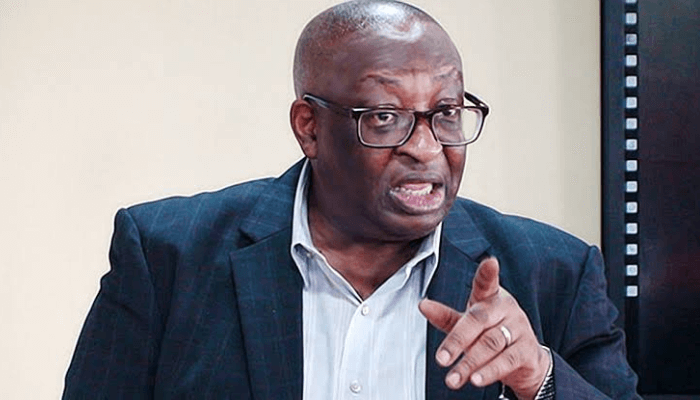
June 12: Experts Urge Urgent Reforms in Nigerian Democracy, Criticize Neo-Liberal Economic Policies
After 25 years of civilian rule in Nigeria (since 1999), the entrenchment of democratic principles in governance remains elusive.
This is partly due to the unfavorable policies and actions or inactions of some unpatriotic politicians, which have not only crippled the economy but also adversely affected the average Nigerian, especially in recent times.
As the Nigerian government sets aside June 12 to commemorate Democracy Day, some economic experts have identified factors undermining democracy and the ideals of June 12. They have called for immediate and deliberate action from both the government and the people to address these issues.
At the 15th Open Forum Town Hall meeting/National Dialogue on the practice of democracy in Nigeria, held in commemoration of Nigeria’s 2024 Democracy Day, former Vice-Chancellor of the University of Uyo, Prof. Akpan Ekpo, argued that democracy cannot thrive if the Federal Government continues with “palliative and neoliberal economic policies.”
Ekpo, a professor of economics, noted that the substantial funds spent on palliative rice could have been better used to alleviate burdens in transportation, education, health, or other social amenities that would benefit everyone.
Presenting a paper titled “Deepening Democracy In Nigeria: The Struggle Between Politics And Governance,” Ekpo emphasized that the ongoing struggle between politics and governance has caused significant hardship for the majority of Nigerian citizens.
He lamented that the ruling class seems unable to distinguish when politics ends and good governance begins, asserting that the country cannot deepen democracy or achieve economic growth without respecting the rule of law, which fosters better economic outcomes.
Ekpo highlighted that 133 million Nigerians are multi-dimensionally poor, 85 percent lack access to basic necessities, and the unemployment rate is at 38 percent, while only 10 percent benefit from the country’s vast resources.
He pointed out that there is nothing inherently wrong with government subsidies, as larger democracies also subsidize various products. However, he criticized the mismanagement of the fuel subsidy in Nigeria, calling for restructuring to grant states more economic power.
“We need federalism, giving states more power. You cannot deepen democracy with a palliative economy. The money wasted on distributing rice could provide cheaper transportation and education. Well-managed subsidies are beneficial, but in Nigeria, the subsidy was a scam and poorly managed,” he said. “The elites in power do not feel what ordinary people, the poor masses, are experiencing.”
Similarly, another Professor of Economics and former Commissioner for Economic Development in Akwa Ibom, Emmanuel Onwiduokit, stressed that without restructuring, Nigeria’s problems will persist indefinitely. He blamed bad leadership for the economic crises and urged the populace to be cautious in selecting leaders with doubtful character and records. He emphasized that public office aspirants must be educated and have a good track record.
“When unqualified people lead those who are educated, the result is what we see in Nigeria. Without restructuring, our problems will remain unresolved for the next 100 years,” he asserted.
Onwiduokit criticized Nigeria’s decision to float its exchange rate when the currency is not convertible, arguing that it leads to devaluation and unnecessary hardship. He reiterated that subsidies are not inherently bad but must be well-managed to avoid corruption and incompetence.
“The problem with subsidies is their management. Incompetence leads to poor decisions, while corruption stems from inordinate ambitions. The recruitment process is crucial; unqualified individuals should not hold government positions,” he said.
Onwiduokit called for an intellectual revolution to make people more aware and proactive in ensuring the right individuals are elected.
Prof. Amaziah Umanah also criticized the undermining of democracy in Nigeria, where political parties are treated as personal properties.
“It’s only in Nigeria that governors appoint council chairmen, councillors, paramount rulers, and chiefs. Is that democracy? Is that governance?” he questioned.
Senator Emmanuel Ibok Essien, Chairman of the Pan Niger Delta Forum (PANDeF), emphasized the need to separate politics from governance for the citizens’ benefit.
Journalist and public affairs analyst Emem Nkereuwem stated that citizens must be intentional in establishing a government that prioritizes long-term development. He stressed that the recruitment process is essential for deepening democracy.
Donald Ekere added that Nigeria needs a leader with strength of character, integrity, compassion, and intellectual sophistication to effectively address itsproblems.
“Look at Rwanda, Mali, Argentina, etc. What they have achieved in three months, Nigeria’s democracy has not achieved in one year. In three months, their inflation rate dropped from thirty percent to fifteen percent,” he noted.
Citizen Matthew Kofi Okono (MKO), founder of the Open Forum Initiative and Convener of the event, urged leaders to transition from politics to governance, replacing the detrimental ‘Nigerian factor’ with the aspirational ‘Nigerian dream.’

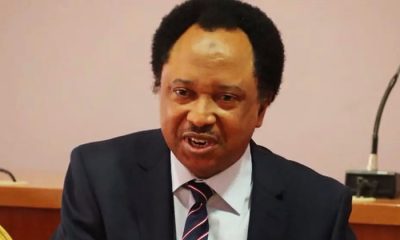

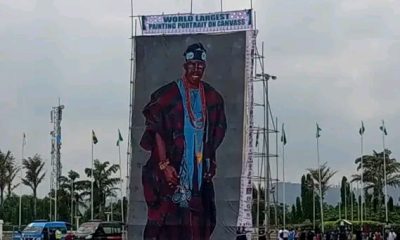

![[VIDEO] Tinubu Stumbles while Boarding Presidential Parade Vehicle at Eagles Square 76 Tinubu Stumbles while Boarding Presidential Parade Vehicle at Eagles Square](https://nigerianews247.com/wp-content/uploads/2024/06/Tinubu-Stumbles-while-Boarding-Presidential-Parade-Vehicle-at-Eagles-Square-400x240.jpeg)
![[VIDEO] Tinubu Stumbles while Boarding Presidential Parade Vehicle at Eagles Square 77 Tinubu Stumbles while Boarding Presidential Parade Vehicle at Eagles Square](https://nigerianews247.com/wp-content/uploads/2024/06/Tinubu-Stumbles-while-Boarding-Presidential-Parade-Vehicle-at-Eagles-Square-80x80.jpeg)
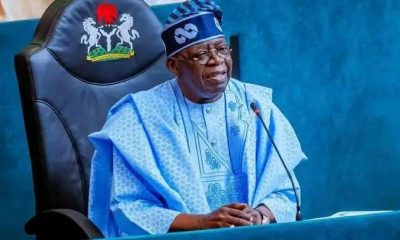

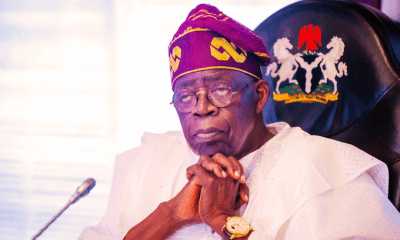




![Top Nigeria Newspaper Headlines Today 25th June 2024 [Tuesday] 85 Nigeria Newspaper Headlines](https://nigerianews247.com/wp-content/uploads/2024/04/Nigeria-Newspaper-Headlines-80x80.png)



You must be logged in to post a comment Login